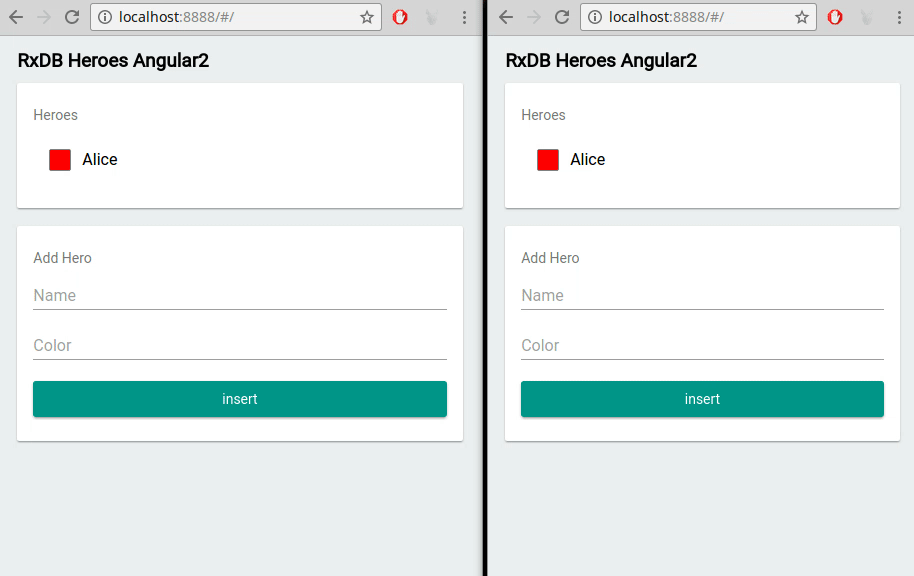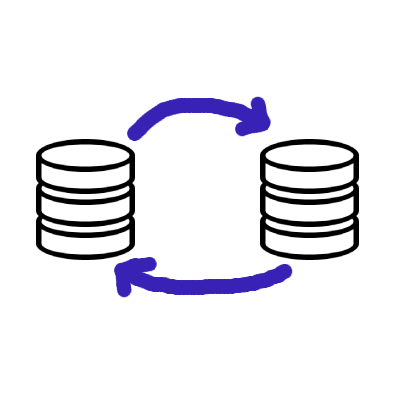RxDB: The benefits of Browser Databases
In the world of web development, efficient data management is a cornerstone of building successful and performant applications. The ability to store data directly in the browser brings numerous advantages, such as caching, offline accessibility, simplified replication of database state, and real-time application development. In this article, we will explore RxDB, a powerful browser JavaScript database, and understand why it is an excellent choice for implementing a browser database solution.
Why you might want to store data in the browser
There are compelling reasons to consider storing data in the browser:
Use the database for caching
By leveraging a browser database, you can harness the power of caching. Storing frequently accessed data locally enables you to reduce server requests and greatly improve application performance. Caching provides a faster and smoother user experience, enhancing overall user satisfaction.
Data is offline accessible
Storing data in the browser allows for offline accessibility. Regardless of an active internet connection, users can access and interact with the application, ensuring uninterrupted productivity and user engagement.
Easier implementation of replicating database state
Browser databases simplify the replication of database state across multiple devices or instances of the application. Compared to complex REST routes, replicating data becomes easier and more streamlined. This capability enables the development of real-time and collaborative applications, where changes are seamlessly synchronized among users.
Building real-time applications is easier with local data
With a local browser database, building real-time applications becomes more straightforward. The availability of local data allows for reactive data flows and dynamic user interfaces that instantly reflect changes in the underlying data. Real-time features can be seamlessly implemented, providing a rich and interactive user experience.
Browser databases can scale better
Browser databases distribute the query workload to users' devices, allowing queries to run locally instead of relying solely on server resources. This decentralized approach improves scalability by reducing the burden on the server, resulting in a more efficient and responsive application.
Running queries locally has low latency
Browser databases offer the advantage of running queries locally, resulting in low latency. Eliminating the need for server round-trips significantly improves query performance, ensuring faster data retrieval and a more responsive application.
Faster initial application start time
Storing data in the browser reduces the initial application start time. Instead of waiting for data to be fetched from the server, the application can leverage the local database, resulting in faster initialization and improved user satisfaction right from the start.
Easier integration with JavaScript frameworks
Browser databases, including RxDB, seamlessly integrate with popular JavaScript frameworks such as Angular, React.js, Vue.js, and Svelte. This integration allows developers to leverage the power of a database while working within the familiar environment of their preferred framework, enhancing productivity and ease of development.
Store local data with encryption
Security is a crucial aspect of data storage, especially when handling sensitive information. Browser databases, like RxDB, offer the capability to store local data with encryption, ensuring the confidentiality and protection of sensitive user data.
Using a local database for state management
Utilizing a local browser database for state management eliminates the need for traditional state management libraries like Redux or NgRx. This approach simplifies the application's architecture by leveraging the database's capabilities to handle state-related operations efficiently.
Data is portable and always accessible by the user
When data is stored in the browser, it becomes portable and always accessible by the user. This ensures that users have control and ownership of their data, enhancing data privacy and accessibility.
Why SQL databases like SQLite are not a good fit for the browser
While SQL databases, such as SQLite, excel in server-side scenarios, they are not always the optimal choice for browser-based applications. Here are some reasons why SQL databases may not be the best fit for the browser:
Push/Pull based vs. reactive
SQL databases typically rely on a push/pull mechanism, where the server pushes updates to the client or the client pulls data from the server. This approach is not inherently reactive and requires additional effort to implement real-time data updates. In contrast, browser databases like RxDB provide built-in reactive mechanisms, allowing the application to react to data changes seamlessly.
Build size of server-side databases
Server-side databases, designed to handle large-scale applications, often have significant build sizes that are unsuitable for browser applications. In contrast, browser databases are specifically optimized for browser environments and leverage browser APIs like IndexedDB, OPFS, and Webworker, resulting in smaller build sizes.
Initialization time and performance
The initialization time and performance of server-side databases can be suboptimal in browser applications. Browser databases, on the other hand, are designed to provide fast initialization and efficient performance within the browser environment, ensuring a smooth user experience.
Why RxDB is a good fit for the browser
RxDB stands out as an excellent choice for implementing a browser database solution. Here's why RxDB is a perfect fit for browser applications:
Observable Queries (rxjs) to automatically update the UI on changes
RxDB provides Observable Queries, powered by RxJS, enabling automatic UI updates when data changes occur. This reactive approach eliminates the need for manual data synchronization and ensures a real-time and responsive user interface.
const query = myCollection.find({
selector: {
age: {
$gt: 21
}
}
});
const querySub = query.$.subscribe(results => {
console.log('got results: ' + results.length);
});NoSQL JSON documents are a better fit for UIs
RxDB utilizes NoSQL JSON documents, which align naturally with UI development in JavaScript. JavaScript's native handling of JSON objects makes working with NoSQL documents more intuitive, simplifying UI-related operations.
NoSQL has better TypeScript support compared to SQL
TypeScript is widely used in modern JavaScript development. NoSQL databases, including RxDB, offer excellent TypeScript support, making it easier to build type-safe applications and leverage the benefits of static typing.
Observable document fields
RxDB allows observing individual document fields, providing granular reactivity. This feature enables efficient tracking of specific data changes and fine-grained UI updates, optimizing performance and responsiveness.
Made in JavaScript, optimized for JavaScript applications
RxDB is built entirely in JavaScript, optimized for JavaScript applications. This ensures seamless integration with JavaScript codebases and maximizes performance within the browser environment.
Optimized observed queries with the EventReduce Algorithm
RxDB employs the EventReduce Algorithm to optimize observed queries. This algorithm intelligently reduces unnecessary data transmissions, resulting in efficient query execution and improved performance.
Built-in multi-tab support
RxDB natively supports multi-tab applications, allowing data synchronization and replication across different tabs or instances of the same application. This feature ensures consistent data across the application and enhances collaboration and real-time experiences.

Handling of schema changes
RxDB excels in handling schema changes, even when data is stored on multiple client devices. It provides mechanisms to handle schema migrations seamlessly, ensuring data integrity and compatibility as the application evolves.
Storing documents compressed
To optimize storage space, RxDB allows the compression of documents. Storing compressed documents reduces storage requirements and improves overall performance, especially in scenarios with large data volumes.
Flexible storage layer for various platforms
RxDB offers a flexible storage layer, enabling code reuse across different platforms, including Electron.js, React Native, hybrid apps (e.g., Capacitor.js), and web browsers. This flexibility streamlines development efforts and ensures consistent data management across multiple platforms.
Replication Algorithm for compatibility with any backend
RxDB incorporates a Replication Algorithm that is open-source and can be made compatible with various backend systems. This compatibility allows seamless data synchronization with different backend architectures, such as own servers, Firebase, CouchDB, NATS or WebSocket.

Follow Up
To explore more about RxDB and leverage its capabilities for browser database development, check out the following resources:
- RxDB GitHub Repository: Visit the official GitHub repository of RxDB to access the source code, documentation, and community support.
- RxDB Quickstart: Get started quickly with RxDB by following the provided quickstart guide, which provides step-by-step instructions for setting up and using RxDB in your projects.
RxDB empowers developers to unlock the power of browser databases, enabling efficient data management, real-time applications, and enhanced user experiences. By leveraging RxDB's features and benefits, you can take your browser-based applications to the next level of performance, scalability, and responsiveness.
 Ask a question on the forums about Benefits of RxDB &...
Ask a question on the forums about Benefits of RxDB &...